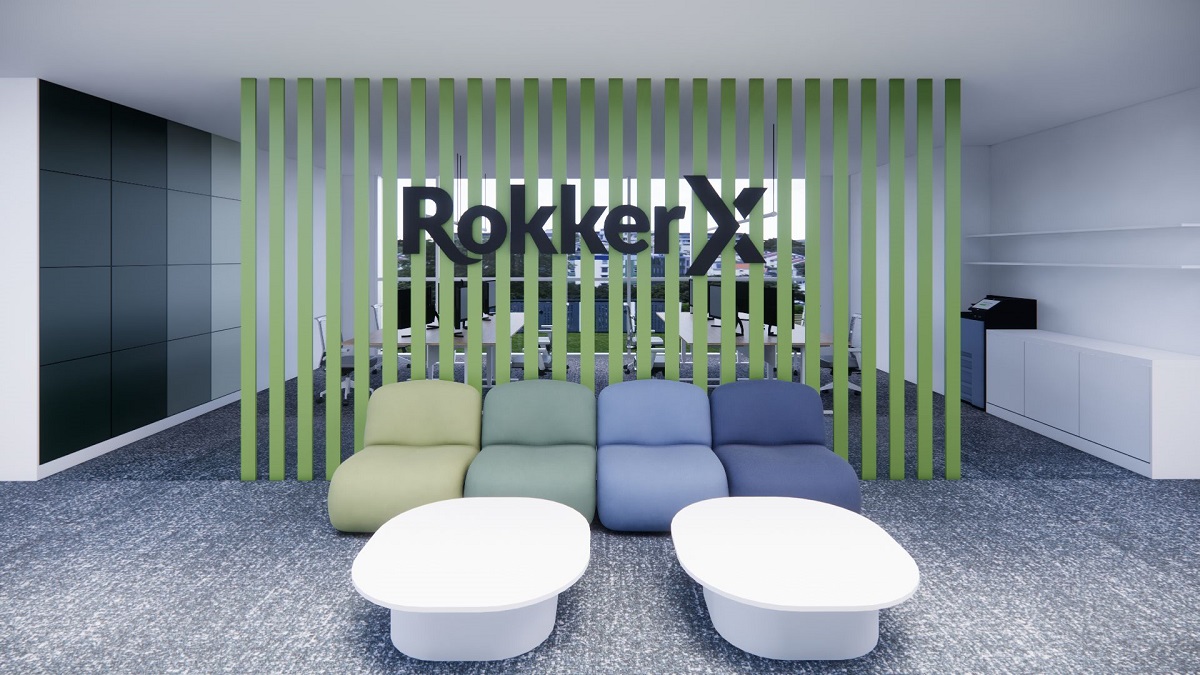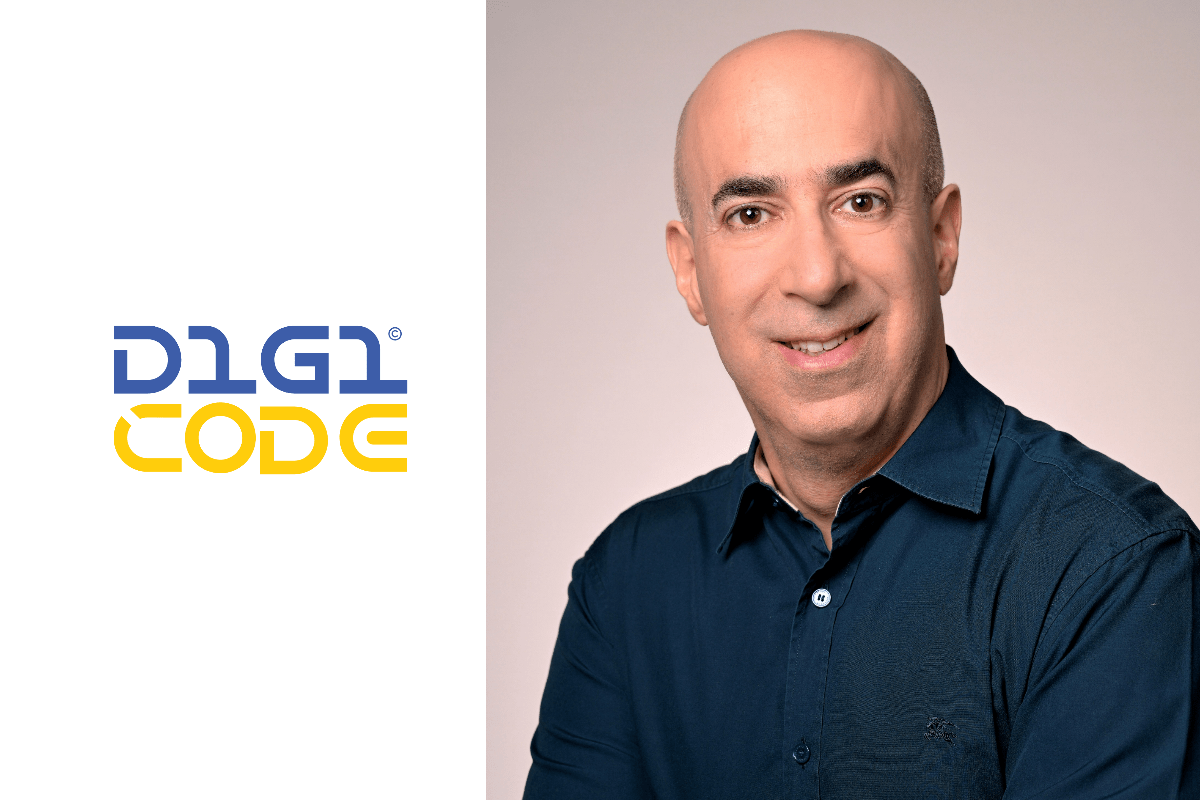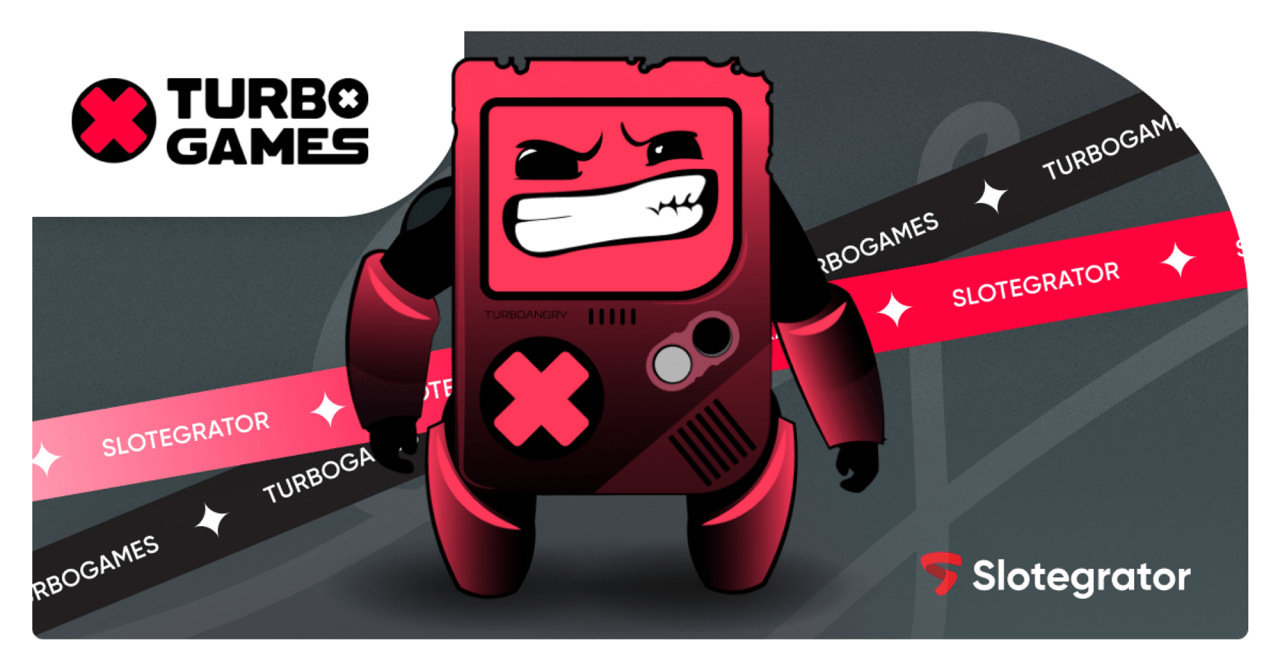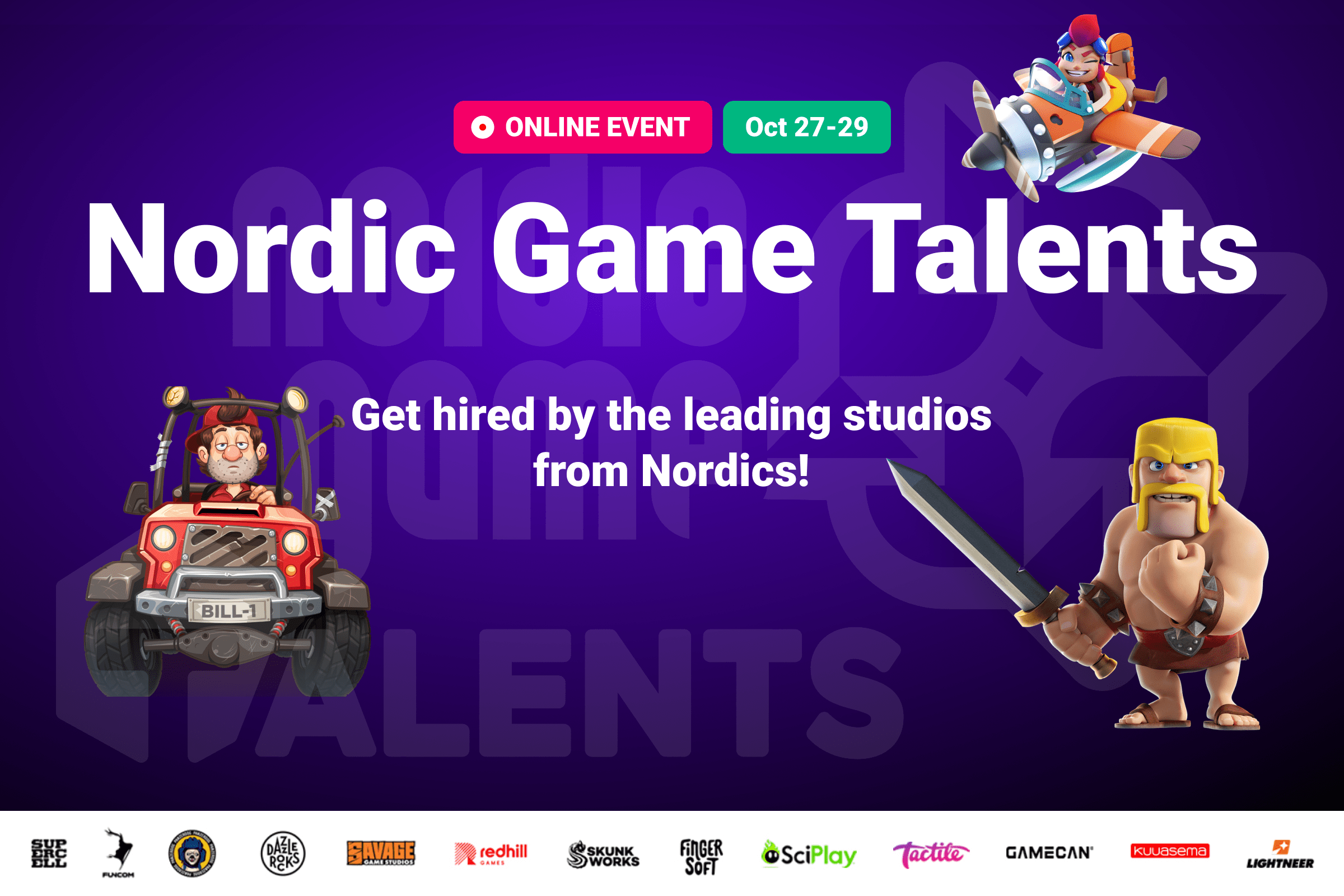News
Malta: The Jurisdiction Of Choice For Blockchain Businesses?
Reading Time: 5 minutes
The below interview has been conducted by Jo Caruana (MaltaChamber.org.mt) – View original source here.
Dr Joseph F. Borg, an advocate and partner at WH Partners, talks through the history of Blockchain and highlights its potential path for the future.
There is an absolute buzz about cryptocurrencies at the moment, as well as whether to invest in them, or to put them down to a scam. Either way, the business world is fascinated.
One expert on the subject is Dr Joseph F. Borg, an advocate and partner at WH Partners, who heads the Blockchain Advisory and the Gaming and Gambling Advisory sections of the firm. On top of that, he is the Vice-President and Co-Founder of BitMalta, which is a non-profit organisation that promotes and stimulates discussion about Blockchain technology and cryptocurrencies in Malta.
“Let’s begin by explaining what a cryptocurrency actually is,” Dr Borg says. “Essentially, it is a type of convertible virtual currency secured by cryptography that is built on top of the Blockchain – a type of distributed ledger technology which does away with the need for a third-party clearinghouse and central issuer. As a result of their underlying decentralised technology, cryptocurrencies have introduced much-needed competition in the digital payments industry and have the potential to contribute positively to citizens’ welfare and economic development, including in the financial sector. Some of the most popular touted benefits of cryptocurrencies are their ability to lower transaction and operational costs, to promote financial inclusion, to enhance the resilience and speed of payment systems, and to increase users’ security and privacy, among others.”
Nevertheless, the idea presented by cryptocurrencies – the first of which was Bitcoin – was not in fact new. A number of similar virtual currency systems including e-Cash, Bit Gold and RPOW, were introduced in the 1990s.
“The true innovation of cryptocurrencies following the ‘Bitcoin model’ is their innovative approach to addressing the ‘double spending problem’,” Dr Borg continues. “This refers to the inherent difficulty of sending money or anything valuable over the internet since a digital asset essentially comprises a digital file that can be duplicated or falsified.”
Pre-Bitcoin, existing virtual currency systems required the use of an intermediary or clearinghouse to manage and verify the transaction (and ensure that the same money was not spent twice). The Blockchain, which underlies cryptocurrencies, does away with the need for such an intermediary by keeping a record of every transaction on a time-stamped database that is dispersed among the different users of the network. “Blockchain’s solution to the ‘double spending problem’ has been described as its ‘revolutionary promise’ and the hype factor surrounding the technology has now led multiple companies to unveil a multitude of Blockchain initiatives,” the advocate continues.
“The hype is really about Blockchain and not cryptocurrencies per se. Cryptocurrencies are really the very first application of Blockchain technology, and which have the potential to disrupt the payments industry, once they have achieved the level of mainstream use.”
On the other hand, Blockchain has more widespread potential applications, in myriad industries, including but not limited to the spheres of finance, healthcare, energy and entertainment. “The buzz surrounding Blockchain technologies continues to grow, and this is most evidently illustrated by the rapid increase in the creation of not only new cryptocurrencies (the so-called ‘altcoins’), but also by the creation of self-executing digital contracts (smart contracts), intelligent assets which may be controlled over the Internet (smart property), and decentralised autonomous organisations (DAOs) which can operate over a network of computers without human intervention, among many other applications,” Dr Borg says.
Locally, Government approved its National Blockchain Strategy in April 2017 and, just a few months later, launched a Blockchain Taskforce with a view to establish the Maltese legal system as the leading international hub for digital technology innovation.
“Currently, the only concrete step undertaken by Government towards achieving a comprehensive regulatory framework for operators wishing to provide services incorporating Blockchain technology is the Supplementary Rules for Collective Investment Schemes Investing in Virtual Currencies, issued by the local financial regulator, the Malta Financial Services Authority (MFSA),” Dr Borg says.
Following on from this, a consultation document was published on 16th February 2018 proposing three legislative instruments: the Malta Digital Innovation Authority (MDIA) Bill, the Technology Arrangements (TAs) Bill and the Virtual Currency (VC) Bill. The MDIA Act is envisaged to provide for the establishment of a national regulatory body that will oversee the voluntary certification of TAs such as smart contracts and cryptocurrency platforms, and the registration of Technology Service Providers (TSPs) including the auditors and administrators of TAs. The MDIA will be responsible, inter alia, for the protection of users and consumers which interface or use DLT, the harmonisation of practices and the adoption of standards in the Maltese sector, and the promotion of legal certainty in the application of laws to DLT businesses, in both a national and a cross-border context.
“Mindful that the disruptive nature of Blockchain technology renders it apt to have spill-over effects in an array of sectors, the MDIA Act is proposed to prescribe a Joint Coordination Board with the responsibility of fostering effective cooperation between National Competent Authorities like the MFSA and the Malta Gaming Authority (MGA),” Dr Borg continues. “The consultation document also proposes a VC Act which will largely follow the principles laid down in the MFSA’s discussion paper on ICOs, virtual currencies and related service providers. It is projected that the VC Act will provide for a Financial Instruments Test which will determine whether a particular cryptocurrency, within the context of an ICO or on a stand-alone basis, constitutes a ‘financial instrument’ which must comply with applicable local and EU investment services legislation.
“With this in mind, Government evidently looks favourably upon Blockchain-based businesses and is actively seeking to create a workable regulatory framework to further promote this nascent industry and to become a pioneer in regulating DLT and Blockchain technology. While other jurisdictions have chosen to regulate Blockchain-related operations in a piecemeal fashion, focusing only on the areas that the respective governments/states consider to be of importance (such as issues of taxation or money laundering), the Maltese Government is considering a holistic, all-encompassing regulatory approach to creating the most attractive environment for Blockchain start-ups to choose Malta as their base. Evidently, the recent announcement by cryptocurrency exchange Binance (the largest cryptocurrency in the world in terms of volume) is proof that Malta is indeed becoming a melting pot for Blockchain businesses, start-ups and industry giants alike.”
Finally, Dr Borg assesses the main challenges that lie ahead of making Malta the jurisdiction of choice for companies engaged in Blockchain technology and cryptocurrencies.
“While the debate surrounding the possibility for centralised rules to regulate decentralised technologies remains unsettled, there seems to be consensus by the stakeholders and market players of the Blockchain and cryptocurrency industry that some form of regulation (especially in the form of guidance) is important,” he says.
“The greatest challenge to make Malta the jurisdiction of choice for Blockchain-based businesses therefore rests in any proposed regulatory framework not falling prey to over-regulation. The test for local policymakers and regulators will be the development of a regulatory system which addresses the primary policy concerns of Blockchain technologies (such as money laundering and illicit activities), without smothering the benefits which the new technology and its various applications are poised to provide to legitimate users, including companies.”
Source: MaltaChamber.org.mt
Latest News
The Untapped Potential of Localised Support January 2024

Objective: Examine how customer experience shapes player retention and brand loyalty in iGaming, placing emphasis on the role of localised, high-quality support.
Outline:
- Introduction: The growing focus on customer experience as a differentiator in iGaming.
- The Value of Localised Support: Exploring how cultural nuances and language fluency enhance player satisfaction.
- Flexibility in Resource Allocation: Meeting fluctuating demand without compromising quality.
- Future Trends: How advancements in technology and localization will shape the next era of player engagement.
Questions for Exploration:
- How does high-quality, localised support impact player satisfaction and retention?
- What role does cultural understanding play in shaping effective customer interactions?
- How can operators balance flexibility with consistency in customer support?
- What emerging trends in customer experience should iGaming businesses prepare for?
Answer:
In the rapidly evolving iGaming industry, players have more choice than ever before—whether it’s brands, slots, game types, payment options, the list goes on. With so much competition, customer experience is quickly becoming a significant differentiator for operators. The ability to deliver a seamless, player-centric experience across multiple jurisdictions is not just a competitive advantage but a necessity in retaining players in this growingly saturated market.
Customer experience today goes far beyond just problem-solving for players. It encompasses proactive, personalised engagement, meaningful recommendations, and a culturally resonant approach. The operators that succeed in this space are those who maintain high standards across these elements, delivering them in a timely and localised manner. Localisation, in particular, is a key factor in turning good customer service into exceptional customer experiences.
So, why is localisation so important? At its core, successful customer support is built on trust. But building trust across diverse jurisdictions is not something that can be achieved through a single, uniform strategy. Methods of communication are a prime example. In Brazil, where the newly regulated market is flourishing, players may expect warm and conversational interactions. In contrast, many European players often favour more concise and formal communication. Recognising and adapting to these cultural nuances allows operators to foster a stronger connection with their entire player base.
Beyond communication style, localisation also plays a critical role in regulatory compliance. The iGaming industry is highly fragmented in terms of regulations, and players are increasingly aware of their rights. A customer service team that understands local legislation implicitly adds immense value, ensuring compliance while delivering tailored support. This not only reinforces trust but also strengthens the player’s respect for the brand.
At the same time, operators face the challenge of balancing high-quality customer support with the flexibility needed to respond to fluctuating demand. This is where RokkerX delivers measurable value. By offering scalable resource allocation and rigorous cross-functional training, we ensure our teams can adapt to surges in demand; whether it’s a major sporting event in a specific jurisdiction or global-scale activity, without compromising on quality. Our teams remain aligned with the core values of our clients’ brands, ensuring a customer-centric approach at all times.
Looking ahead, the iGaming industry is poised for further transformation, driven by advancements in technology and localisation. At RokkerX, we are committed to staying at the forefront of these changes to help our clients deliver exceptional experiences. Trends like the growing prominence of omnichannel communication, including social media and in-app messaging, and advancements in natural language processing (NLP) will enable operators to communicate with even greater precision and cultural nuance. Yet, the future will demand more than just technology. The ability to strike the right balance between tech-driven solutions and the human touch will be essential in creating meaningful connections with players.
As the industry evolves, the blend of cutting-edge technology, cultural understanding, and human expertise will define the next era of player engagement. By staying ahead of these trends, RokkerX ensures our clients are not only prepared for the future but thrive in it.
The post The Untapped Potential of Localised Support January 2024 appeared first on European Gaming Industry News.
Latest News
Innovations Redefining iGaming: What Operators Need to Know

The iGaming industry is advancing at breakneck speed, driven by technological innovation and evolving player expectations. Itai Zak, Executive Director of iGaming at Digicode, emphasizes the importance of bridging client aspirations with customized business solutions. Key trends shaping the future of iGaming include live dealer games, blockchain integration, artificial intelligence (AI) and machine learning (ML), enhanced personalization, and shifting regulatory environments. Let’s delve into how these trends influence the industry, presenting new opportunities while paving the way for future growth.
A Closer Look at Emerging Trends
- Live Dealer Games
Live dealer games are revolutionizing the online gaming experience, blending the best aspects of land-based casinos with the convenience of virtual gaming. Players can now engage with real-life dealers via high-definition video streams, enhancing the social component of online gambling. This bridge between physical and virtual casinos introduces interactive features like live chat and immersive gameplay. Industry leaders like Evolution Gaming and NetEnt are setting new standards in player engagement with innovative game formats and top-tier studio setups, redefining the realism and appeal of live gaming.
- Blockchain and Cryptocurrency Integration
Blockchain technology is transforming iGaming by offering unparalleled transparency and security. With blockchain’s ability to enable provably fair gaming, players can verify that each round is fair via an immutable ledger. Cryptocurrencies like Bitcoin and Ethereum facilitate faster, more secure transactions, catering to tech-savvy players who value privacy. Platforms like Bitcasino.io are leading the way, leveraging blockchain to ensure fairness and seamless payments. However, the rise of blockchain also attracts regulatory attention, requiring operators to balance innovation with compliance as governments navigate this new technology.
- Artificial Intelligence and Machine Learning
AI and ML are instrumental in enhancing player experience and operational efficiency. AI algorithms analyze player behavior in real-time, offering personalized game recommendations and promotions. Additionally, AI-powered chatbots provide instant customer support, improving user satisfaction. AI-driven predictive analytics also help operators fine-tune marketing strategies based on player preferences. Companies like Bet365 are already using these technologies to stay ahead of the competition, offering more personalized and efficient gaming experiences.
- Richer Personalization and Engagement
Personalization has become crucial for iGaming operators looking to boost player satisfaction and retention. By leveraging data analytics, companies can offer tailored game recommendations, dynamic bonuses, and individualized promotional offers. This level of engagement enhances the player experience and strengthens loyalty. Industry pioneers like DraftKings and FanDuel push the envelope by offering highly customized features, such as personalized fantasy sports leagues and bespoke betting options.
- Regulatory Changes and Market Expansion
The constantly evolving regulatory landscape offers both challenges and opportunities for iGaming operators. As more regions legalize various forms of online gambling, companies gain access to new markets. With their large populations and increasing internet penetration, emerging markets like Brazil and Nigeria represent lucrative opportunities. However, navigating the diverse regulations in these markets requires agility and strict compliance with local laws to succeed.
- Enhanced Payment Solutions
With digital transactions becoming the norm, the demand for fast, secure, and flexible payment methods is skyrocketing. From digital wallets to instant banking and cryptocurrencies, players expect payment solutions that offer convenience and security. This growing demand is driving innovation in payment processing, giving operators more opportunities to streamline the transaction process while building trust with users.
Future Implications
The Expanding Role of AI and Blockchain
AI and blockchain are not just current trends, but they are poised to play an even more significant role in iGaming’s future. As AI technology evolves, more sophisticated algorithms will emerge, enabling real-time adaptation to player behavior and preferences. Blockchain’s application may extend beyond transparency and security, transforming game mechanics and player interactions potentially redefining how games are designed and played.
Shifting Player Preferences
Player expectations will continue to evolve toward immersive, interactive experiences. As Virtual Reality (VR) and Augmented Reality (AR) become more mainstream, they will significantly influence the future of iGaming. Players will demand more engaging, lifelike environments, pushing the industry to create innovative game formats and features that offer deeper immersion and entertainment value.
Regulatory Developments
The regulatory environment will continue to evolve, and iGaming operators must stay agile to navigate future changes. New regulations may increasingly emphasize responsible gaming and player protection, influencing platform design and operational practices. A more harmonized regulatory framework across jurisdictions could provide stability while requiring operators to prioritize compliance.
Integrating Emerging Technologies
Technologies like 5G and edge computing are set to revolutionize iGaming by enabling faster, more reliable connectivity. This will allow for more complex game designs and real-time player interactions, opening new avenues for innovative gaming experiences. As these technologies mature, operators will have greater opportunities to differentiate their offerings. The potential of these emerging technologies to revolutionize iGaming is truly exciting and promising for the industry’s future.
Final Thoughts
The iGaming industry is on the cusp of significant transformations, driven by technological advancements and shifting player demands. Innovations like live dealer games, blockchain integration, AI, ML, and enhanced personalization are just the beginning. As the industry evolves, staying ahead of these trends will be critical for operators looking to thrive in an increasingly dynamic environment.
At Digicode, we are constantly exploring new technologies and refining our solutions to meet the evolving needs of our clients. Our focus on adaptability and foresight ensures that our clients are not just keeping pace with the industry—they’re leading it.
The post Innovations Redefining iGaming: What Operators Need to Know appeared first on European Gaming Industry News.
Latest News
What makes Turbo Games’ provably fair games so special?

A partnership between game developer Turbo Games and iGaming solution provider and aggregator Slotegrator began in November 2022 via the APIgrator game integration solution. Since then, the collaboration has been developing successfully — and now it’s time to analyze what made it successful.
Turbo Games has noticed how the new technologies spreading throughout the industry can work for the good of brand transparency and player loyalty: “We can already see how blockchain technology has made it possible to make betting checks more accessible to players. All you need is a blockchain-hash and a decoder service. We think we will continue to move in this direction. Many traditional online casinos do not offer the possibility to check the bet. Sooner or later we all have to come to this. Perhaps the development of artificial intelligence will help here, because we are already seeing its involvement in all spheres of human life.”
Turbo Games specializes in provably fair games. Provable fairness is a concept where players can verify their wins or losses using blockchain technology — the outcome of the game is dictated by a smart contract and is absolutely random, barring the possibility of any human involvement. Using cryptographic hashing algorithms, the gambling site and the player’s device both generate seeds (random strings of numbers). Players receive a key that allows them to check the results; if the results are the same as the game round they witnessed, it proves that there was no foul play.
According to statistics from Turbo Games, the audience for provably fair games is mostly between 18 and 25 years old. However, there are also players aged 35-40 who prefer traditional games but would like to try something new, and have turned their attention to provably fair games.
There are good odds that the technology of provably fair games will become more popular, if not even commonplace, because it gives players a feeling of transparency and proves that the business is trustworthy without the need to search through dozens of reviews. Whereas many innovations in iGaming simply add entertainment, provable fairness addresses security concerns and reassures players that they’re not being exploited, which is invaluable.
Provably fair games are beneficial for both players and online casinos. Vadim Potapenko, Head of Sales at Turbo Games, comments: “It often happens that the users are not satisfied with the result, because gambling is not only about big wins, but also possible losses. By allowing them to check the fairness of a bet, we make life easier for platforms and players. Of course, this allows us to communicate with partners and users that we work honestly and that’s why they should trust our games.”
Ayvar Gabidullin, Business Development Manager at Slotegrator, adds that “this type of game is now becoming more and more popular and has great potential for both players and game providers in the future. On the part of the player, the advantage is that the player can always be sure that his game is fair and he can independently check any of his bets. And for the game provider, this also simplifies the process of implementing casino games, since now it will not be necessary to obtain the appropriate certificates from independent laboratories before launching new games, they can immediately enter the market with these games and where anyone can check the result and make sure that that there is no cheating with players. Many game providers are starting to look towards this type of game. And as far as I see, many operators are starting to think about adding these games.”
What do players in 2023 need? The iGaming industry is all about reputation and trust. Players have a huge number of platforms to choose from, making them pickier and pickier. There’s an abundance of forums where players leave reviews, so if players view a brand as untrustworthy, there are plenty of places they can share their opinion. Provable fairness not only stops that from happening, it provides evidence to the contrary, giving players something else to talk about.
Slotegrator also recommends investing time and effort into localization and creating an effective and detailed marketing strategy — before trying provably fair technology players need to get to the platform, and there is no acquisition without marketing.
ABOUT SLOTEGRATOR
Since 2012, Slotegrator has been one of the iGaming industry’s leading software and business solution providers for online casino and sportsbook operators.
The company’s main focus is software development and support for online casino platforms, as well as the integration of game content and payment systems.
The company works with licensed game developers and offers a vast portfolio of casino content: slots, live casino games, poker, virtual sports, table games, lotteries, casual games, and data feeds for betting.
Slotegrator also provides consulting services in gambling license acquisition and business incorporation.
More information: https://slotegrator.pro/
ABOUT TURBO GAMES
Turbo Games — a provably fair games provider that belongs to Turbo Stars company — has an ambitious goal to establish widespread recognition throughout the iGaming world. Even though it is young, the company consists of professionals who have been working on the brand for over five years and are even planning to introduce a new brand for a wider audience soon.
Turbo Games also works in Europe, India, and South Africa, where the company sees the most potential and expects the same “hype” as in Brazil.
The portfolio of Turbo Games consists of 21 titles, including well-known games like Mines, Crash X, DoubleRoll, Hi-Lo, and Plinko. The studio releases a game every month. However, not all games are developed from scratch. Wicket Blast and Spin Strike, the last two releases, are based on cricket and the Indian Premier League. Crash X remains the most popular fast game in the Turbo Games portfolio, and the studio reports that crash games enjoy stable levels of popularity. Overall, the main focus of the brand is provably fair games.
More information: https://turbogames.io/
-

 gaming3 years ago
gaming3 years agoODIN by 4Players: Immersive, state-of-the-art in-game audio launches into the next generation of gaming
-
EEG iGaming Directory9 years ago
iSoftBet continues to grow with new release Forest Mania
-
News8 years ago
Softbroke collaborates with Asia Live Tech for the expansion of the service line in the igaming market
-
News7 years ago
Super Bowl LIII: NFL Fans Can Bet on the #1 Sportsbook Review Site Betting-Super-Bowl.com, Providing Free Unbiased and Trusted News, Picks and Predictions
-
iGaming Industry8 years ago
Rick Meitzler appointed to the Indian Gaming Magazine Advisory Board for 2018
-
News7 years ago
REVEALED: Top eSports players set to earn $3.2 million in 2019
-
iGaming Industry8 years ago
French Senator raises Loot Boxes to France’s Gambling Regulator
-
News7 years ago
Exclusive Interview with Miklos Handa (Founder of the email marketing solutions, “MailMike.net”), speaker at Vienna International Gaming Expo 2018














